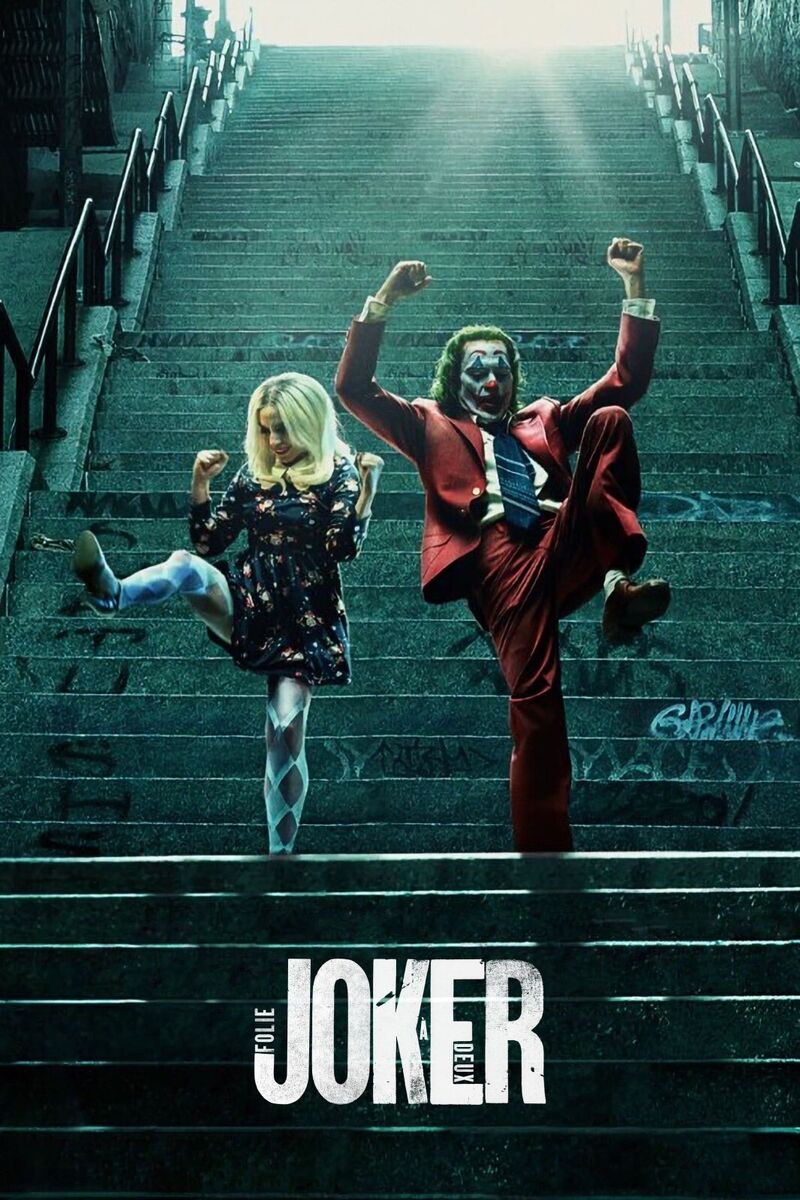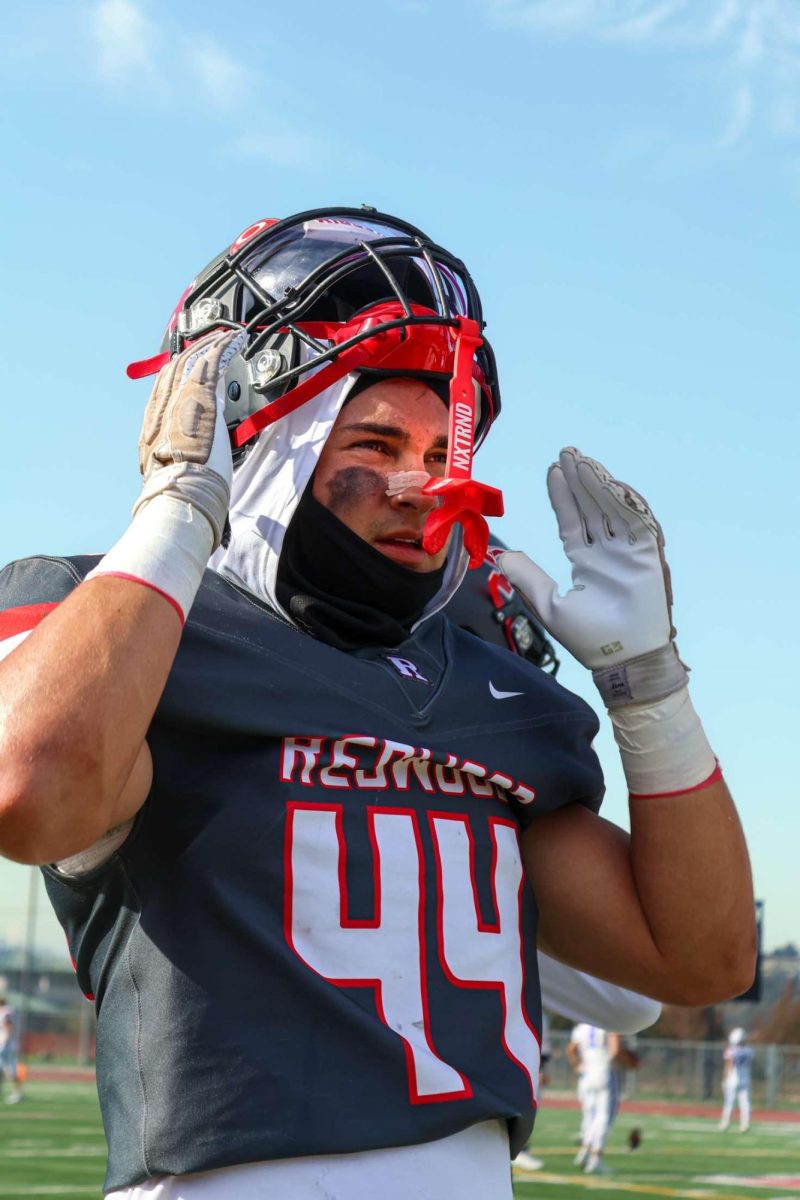“Who is Blurryface and why does he want to kill me?”
Lead singer of twenty one pilots, Tyler Joseph, and drummer Josh Dun posted that sentence on the band’s Facebook prior to the release of the band’s second studio album “Blurryface” on May 19.
Joseph and Dun’s postings online prior to the album’s release specified that “Blurryface” was written for fans, that it is “your” album.
The duo spend the entirety of the album exploring the abstract concept of Blurryface, which symbolizes Joseph’s depression and darker side.
The album is almost a complete turnaround from the band’s first release, “Vessel”, in 2013. Where “Vessel” was full of upbeat, jaunty synths, intimate piano, swift ukulele, and metaphoric lyrics, “Blurryface” contains downbeat electronic drums, a reggae flair, and lower, slower synth.

Joseph, however, still retained his personal style of storytelling in his lyrics. Though fewer metaphors are evident in them, the lyrics still capture points in time accurately, allowing any listener to view the world from Joseph’s perspective for the duration of the song. The style of the album is varied and the band retains no constant genre throughout the album.
The album starts with mixed sounds of electronic distortion in the track “Heavydirtysoul”. The instrumentals of the song are highly processed and downbeat during the verses but high-energy and fast-paced drums dominate the chorus as Joseph screams out asking “Can you save my heavy, dirty soul?” The verses themselves are rapped in a fast pace, and Joseph sets the precedent for the album with the line “This is not rap, this is not hip-hop, just another attempt to make the voices stop.”
The second song, “Stressed Out” contains a low, thumping bass line throughout and light touches of oscillating piano during the chorus. Joseph sings slower in this song than in “Heavydirtysoul” and laments his lost childhood and the fact that his life has been reduced to the phrase “wake up, you need to make money.” This song allows for the band members to pay homage to their hometown in discussing the areas they used to explore and the things they wondered about as children. The end of the song distorts Joseph’s vocals entirely offkey, a choice made by the band to express Blurryface speaking.
“Ride” represents a complete departure from any genre the band has dabbled in before. Featuring a more cymbal-based, relaxed, smooth synth, “Ride” shows reggae influence. Joseph explores the paradox of living for somebody but also being willing to die for them through expedited rap in the verse “All these questions they’re forming like, who would you live for? Who would you die for? Would you ever kill?”. The song contains multiple slower piano-based portions where Joseph asks for help because he’s been “thinking too much,”, giving the song the vibe of encompassing all aspects of a human psyche.
Reggae influence is also apparent in the song “Message Man” with its jaunty keyboarding and relaxed drumming. Instead of rapping, Joseph spends the song stretching his voice to higher octaves than are present throughout the rest of the album.
The first single released for “Blurryface,” “Fairly Local” is relatively simple in terms of lyrical content compared to the rest of the album, containing only five lines in the verse that are made opposite for the second verse and the relatively simple chorus of “I’m fairly local, I’ve been around, I’ve seen the streets you’re walking down, I’m fairly local, good people now.” The instrumentals on this song are entirely electronic and the distorted voice of Blurryface interjects in the second chorus, saying “The world around us is burning but we’re so cold, it’s the few, the proud, and the emotional,” and takes over toward the end of the song, symbolizing Joseph’s doubts of his ability to help his fans.
“Tear In My Heart” and “We Don’t Believe What’s On TV” stand uniquely in the album as fully upbeat love songs despite their differing styles. The instruments featured on both songs contain no electronics, but “Tear In My Heart” instead is backed primarily by piano, bass, and the crashing sounds of Dun’s drum cymbals while “We Don’t Believe What’s On TV” is carried heavily by speedy, upbeat ukulele and drums akin to those of a marching band.
Lyrically, “Tear In My Heart” is rather cute with lines like “the songs on the radio are okay, but my taste in music is your face” and tiny anecdotes such as “you fell asleep in my car, I drove the whole time, but that’s okay, I’ll just avoid the holes so you’ll sleep fine.”
“We Don’t Believe What’s On TV,” however, gets more personal than that in saying, “I don’t care what’s in your hair, I just wanna know what’s on your mind, I used to say I wanna die before I’m old, But because of you I might think twice,” conveying the idea that it is Joseph’s love that is keeping Blurryface from taking him over.
“Lane Boy” expounds on Joseph’s feelings toward the recording industry and contains tightly controlled drums that eventually warp into a dubstep-esque breakdown complete with the vocal distortions of Blurryface. This song serves in part for Joseph to apologize to the fans if they feel the album forays too far into pop culture, “Honest, there’s a few songs on this record that feel common, I’m in constant confrontation with what I want and what is poppin’ in the industry”. Joseph’s introspection is the hallmark of his lyrical output and nowhere are his lyrics sharper on “Blurryface” than in “Lane Boy”.
The ukulele-backed “The Judge”, fully electronic and distorted “Doubt”, and jaunty piano and synth based “Polarize” all display Joseph attempting to fight off Blurryface with lyrics like “I don’t know if this song is a surrender or a rebel, I don’t know if this one is about me or the devil” and “I wanted to be a better brother, better son, wanted to be a better adversary to the evil I have done”.
“Hometown” is a near quintessential example of an alternative song with its faded synth, sparring piano and romping drum beat. The song also touches upon the theme of lost childhood with lyrics such as “We don’t know, we don’t know where to find what once was in our bones”. Blurryface is present nowhere in this song, and the overall relaxed feel of the instruments makes “Hometown” a fantastic song to wind down to.
With jumpy piano, a trumpet interlude, and upbeat, expedited synth, “Not Today” appears an upbeat song on the surface. However, the content deals with Joseph’s ultimate struggle with Blurryface and his attempts to defeat him in saying, “You are out of my mind, oh you aren’t seeing my side, you waste all of this time trying to get to me, but you are out of my mind.”
When it becomes apparent at the end of “Not Today” that Joseph is capable of defeating Blurryface, the album begins its final song, “Goner”. Comparable to “Truce” from twenty one pilots’ last album, “Goner” features only Joseph and his piano. Joseph sings to his fans, asking them to help “take out” Blurryface, because without their support, he’ll be a goner.
“Blurryface” as a whole is a complete departure from “Vessel”, but Joseph and Dun’s foray into new genres is a pleasant experience, and the conveyance of one’s darkness through a distorted voice is a cleverly executed idea.






